- Published by:
- Department of Education
- Date:
- 12 Oct 2022
The Early Childhood Update e-newsletter is sent to early childhood teachers and workers, but is open to anyone interested in best practice in early years education and evidence-based teaching approaches. Subscribe here to receive the e-newsletter.
Message from the Deputy Secretary
A message from Kim Little, Deputy Secretary of Early Childhood Education.
Dear colleagues
Welcome to the first edition of the new-look Early Childhood Update. After its hiatus during the COVID-19 pandemic, I’m thrilled to re-launch our monthly newsletter to help keep us all informed and connected across the Victorian early childhood sector.
We have a lot to talk about and celebrate, thanks to your exceptional work supporting the young children and families in your communities.
Through the newsletter, we will provide regular updates about the work we are all doing together to deliver truly nation-leading Best Start, Best Life reforms that will provide universal Three-Year-Old Kindergarten, a shift to 30 hours of Pre-Prep by 2032, the delivery of 50 state-owned early learning centres, Free Kinder from 2023, and initiatives to attract, retain and develop our outstanding workforce.
As you and your teams work with us on these transformational changes, we look forward to sharing relevant information for your service operations and your workforce, celebrating milestones and highlighting success in the sector across the state.
I’d like to share with you this new video that we are looking forward to sharing through our social media channels. It’s a lovely showcase of the opportunities of quality early learning, told from a child’s perspective. Aptly titled ‘Make every day a new adventure’, it shows the immense value of the work of teachers and educators in supporting children to learn, play and connect with others.
A child’s first years of life are critical to their long-term health and development, and early childhood education services play a vital role in enabling all children to reach their potential. I love taking any chance to tell these stories, and we welcome your ideas to showcase some of the excellence in services and the support and education they provide to children and families.
There is no doubting the central role that your services play in supporting children and their families. This has never been clearer than over the last couple of years, in the face of the challenges brought by the pandemic. Our COVID-19 updates to you will continue as needed, as will time-critical health and policy advice, outside of this newsletter.
I encourage you to share this edition of Early Childhood Update with your services and workforce and encourage them to subscribe.
Kim Little
Deputy Secretary
Early Childhood Education
Setting up for Free Kinder in 2023
Funding and operational advice for offering Free Kinder in 2023, including how to print signage and other materials.
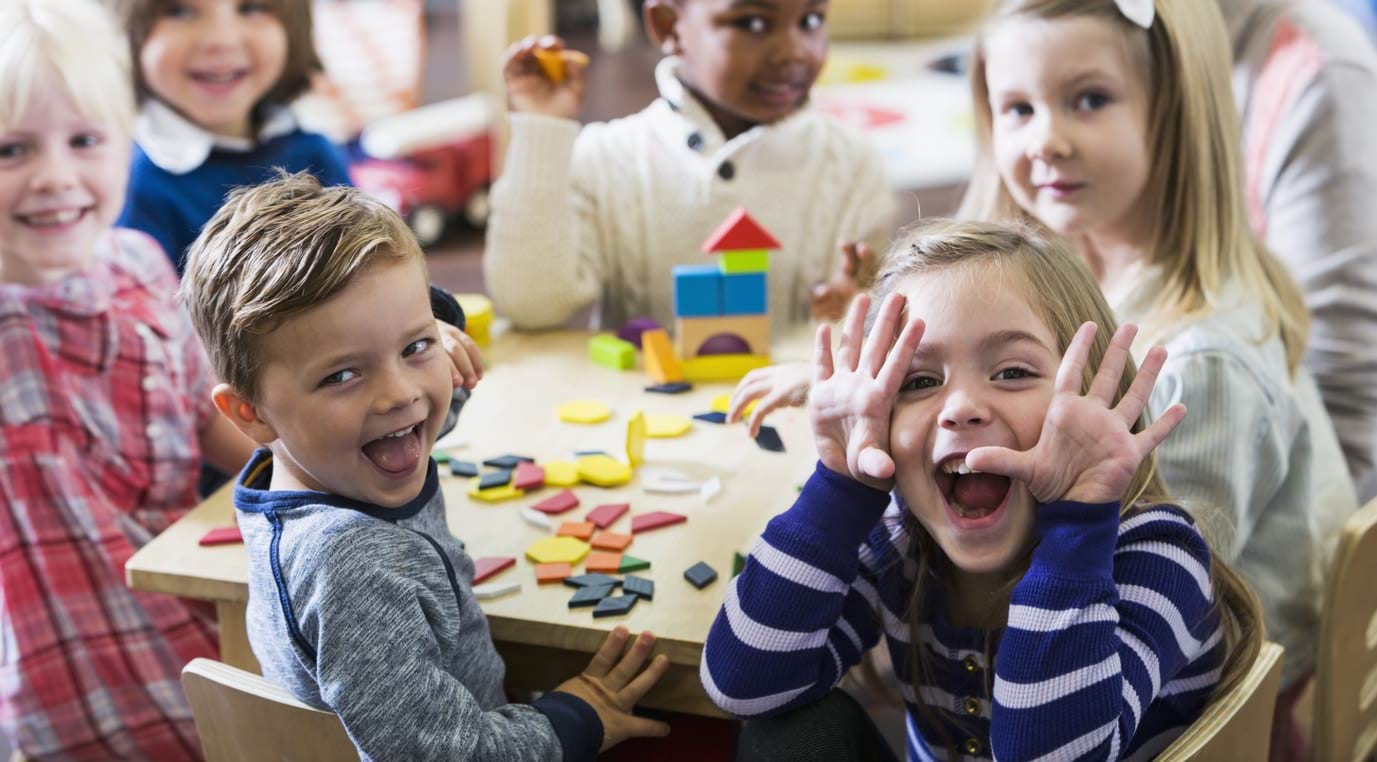
All early childhood education and care providers that deliver a funded kindergarten program in Victoria are eligible to receive Free Kinder funding from 2023, subject to meeting terms and conditions.
Participating services that have opted in to providing Free Kinder in 2023 can:
- use the guidelines for services for detailed funding and operational advice on Free Kinder, including frequently asked questions
- access the fact sheets, social media tiles and translated information about the Best Start, Best Life, including Free Kinder, to help you to communicate and promote the program to families.
Find out more
For more information, refer to:
Victorian Early Years Awards finalists announced
Early years organisations, teachers and educators are among those recognised.
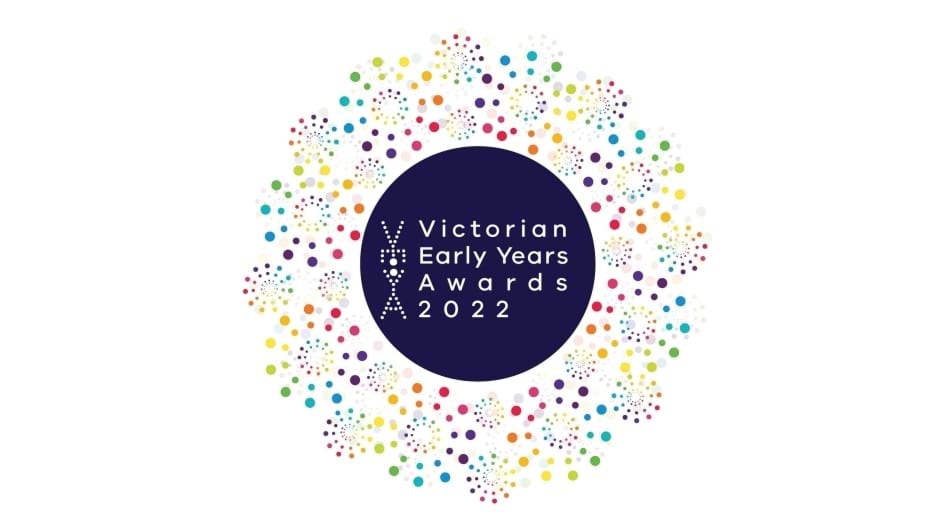
Nineteen leaders in early childhood education and development are in the running for top honours at the 2022 Victorian Early Years Awards on Wednesday 9 November 2022.
Now in their 17th year, the awards celebrate the exceptional contributions of the early childhood education sector.
The achievements of this year’s finalists again highlight the vital work happening to support the early years of children’s lifelong education journeys.
Across 7 categories, including Early Childhood Teacher of the Year, the awards recognise achievement, dedication and innovation in improving outcomes for young children and their families. You can learn more about the finalists and their achievements at the Victorian Early Years Awards website. Their inspiring stories include:
- a service supporting children experiencing homelessness and family violence to remain in education
- a coalition of organisations taking a whole-of-city approach to supporting children and families to access the support they need to thrive
- a free toy-lending library for pre-school children from migrant and refugee families
- a service that comprehensively assessed and modified their environment, systems and practices to support all children to fully participate in learning
- a leadership team who developed a locally relevant and meaningful bush kinder program for their community.
Winners receive a grant of $15,000 towards professional development or to further develop their program or initiative.
Find out more
For more information on the awards, refer to the Victorian Early Years Awards website.
Early Learning Leadership Forums 2022
The forums brought together service leaders in sessions across the state to focus on community connections.

Throughout August and September 2022, the department’s Early Learning Leadership Forums gave those in leadership roles in delivering kindergarten programs across Victoria important opportunities to connect and collaborate.
Focusing on the theme ‘Access and equity: Facilitating genuine family and community partnerships’, the forums were held in 17 department areas across the state.
Each forum featured locally tailored, interactive sessions including guest speakers, case studies and panel discussions. The sessions gave attendees the opportunity to reflect and share their insights and experience.
Attendees heard from the Minister for Early Childhood and Pre-Prep, Ingrid Stitt, about the Best Start, Best Life reform, along with an interview between ECEC consultant Catharine Hydon and Emma King, Chief Executive Officer of Victorian Council of Social Service.
Catharine and Emma called on the attendees to consider how, in their leadership roles, they can keep their strategic purpose in mind while delivering high-quality programs for all children.
It was fantastic to see so many leaders from across the state coming together to connect and collaborate.
The next leadership forums will take place in Term 1, 2023. Keep an eye on your inbox for details about dates and venues.
Find out more
If you want your service to take part in the Early Years Learning Leadership Forums, contact the Practitioner and Leadership Development team by email: ec.forums.networks@education.vic.gov.au
Attracting kindergarten educators
Financial incentives to attract qualified early childhood educators and teachers in 2023.
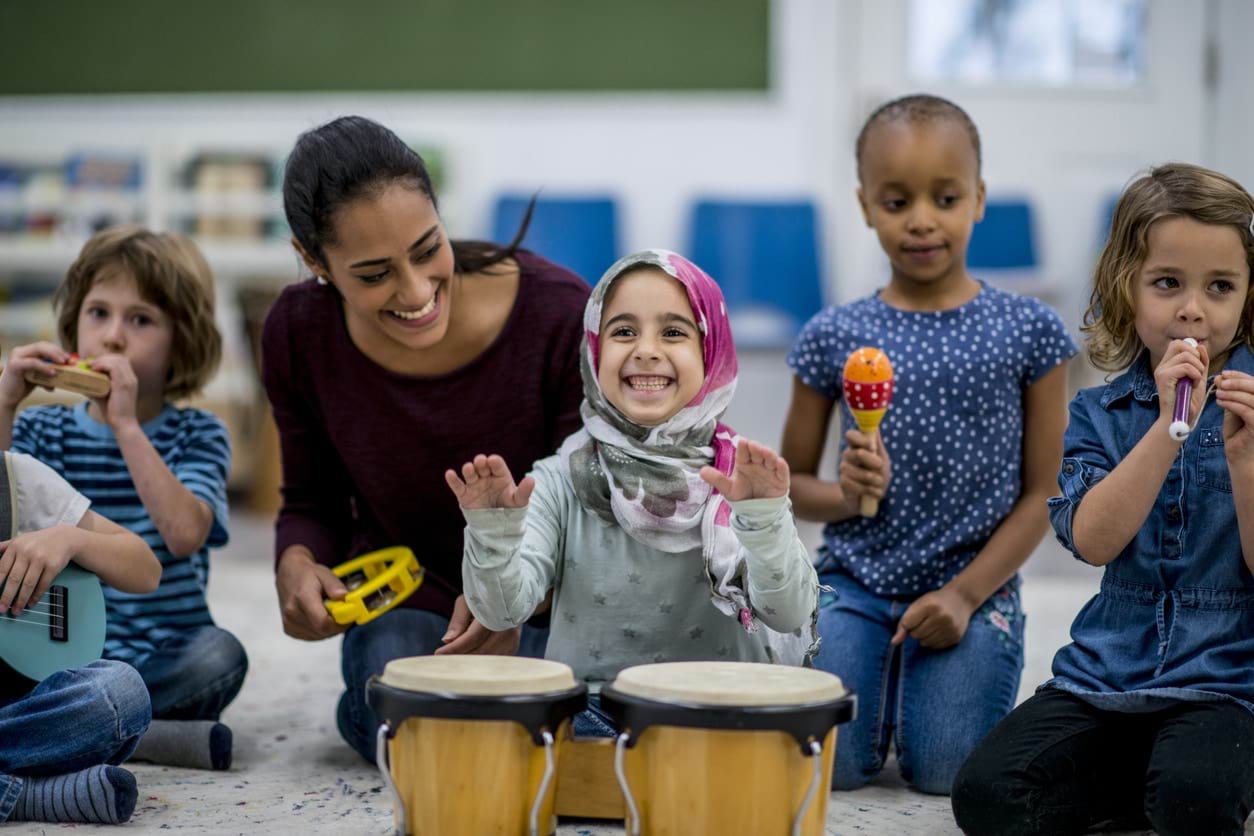
Financial incentives are now available to attract qualified early childhood educators and teachers to work in services delivering Three-Year-Old Kindergarten next year.
For educators
Incentives of $9,000 are available for eligible educators working outside funded kindergarten services, or relocating from interstate or New Zealand, to take up a role in a funded kindergarten program at any service delivering Three-Year-Old Kindergarten in 2023.
There are also $9,000 educator location incentives available for eligible educators to take up a role in a funded kindergarten program at selected services. The department will notify services if they are pre-approved to offer an educator location incentive.
For teachers
Individual incentives of $9,000 are available for eligible early childhood teachers working outside the Victorian early childhood sector, or relocating from interstate or New Zealand, to take up a role at any service delivering, or planning to deliver, funded Three-Year-Old Kindergarten in 2023.
There are also location incentives between $9,000 and $50,000 available for eligible early childhood teachers to take up a role at selected services. The department will notify providers if their services are pre-approved to offer a location incentive.
Eligible teacher and educator applicants who meet the criteria for location and individual incentives can receive both payments.
A relocation supplement of up to $8,000 is also available for teacher and educator incentive recipients who move more than 200 kilometres to take up a role.
Find out more
Find out more For further information about financial incentives, refer to financial support to study and work in early childhood.
Victoria’s Skilled Migration Program is open
Let your network know they can register their interest for the 2022–23 program, which will run until May 2023.
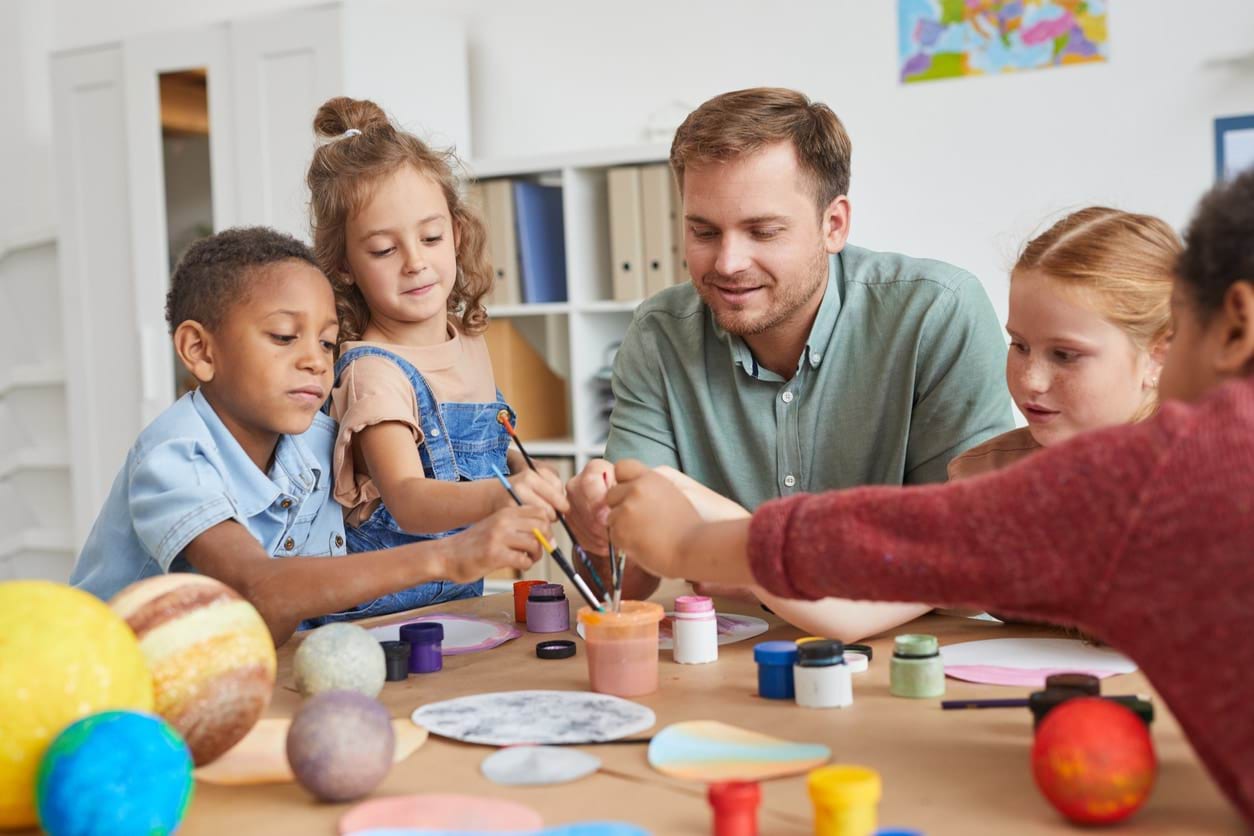
Registrations for the 2022–23 Victorian Skilled Migration Program, which provides skilled migrants with pathways to permanent residency in Victoria, are open.
Early childhood education teaching has been added to the program’s priority list. Early childhood education services and providers can promote the opportunity to their networks, and we encourage all interested and qualified early childhood teachers to apply.
With the Best Start, Best Life reforms underway, it is an exciting time to be an early childhood teacher in Victoria.
How to apply
Qualified early childhood teachers living in Victoria or overseas can register for the program by submitting a Registration of Interest.
If selected, applicants will then have 2 weeks to lodge an application with the Department of Home Affairs. Applicants should ensure their SkillSelect information is up to date, to support the selection process.
Applicants must hold an approved early childhood teaching qualification listed on the Australia Children’s Education and Care Quality Authority (ACECQA) website or apply to ACECQA for an individual skills assessment.
Unsuccessful applicants in 2021–22 will need to submit a new or updated application.
Find out more
For more information, refer to Live in Melbourne.
For specific assistance with visa applications, visit the Department of Home Affairs.
For further enquiries, contact the department by email: early.childhood.jobs@education.vic.gov.au
Celebrate Children’s Week 2022
Join the festivities from 22 October 2022 and share information about local events with parents and carers.
Children's Week is a national celebration that recognises the talents, skills, achievements and rights of children. Please share information about Children’s Week events, and how families can get involved, with parents and carers at your service.
Held from Saturday 22 to Sunday 30 October 2022, the week is a great opportunity for Victorian families to enjoy fun, engaging and educational experiences at no cost.
This year’s theme for Children’s Week is ‘All children have the right to a standard of living that supports their wellbeing and healthy development’, drawn from Article 27 of the United Nations Convention on the Rights of the Child.
During the week, local councils, not-for-profit organisations, schools and early childhood services organise open days, displays, special events and virtual activities for children and families.
All Children's Week events are free for families with children aged from birth to 12 years.
Find out more
For more information and to find an event near you, please refer to Children's Week.
Manage your Early Childhood Update subscription
The monthly email newsletter will be your main channel for department updates. It is published online and open to subscription.

Early Childhood Update is the department’s monthly email newsletter for early childhood services and other subscribers.
The newsletter will include most of the information we have been sending to you through regular emails. This includes information on COVID-19, government programs, funding opportunities, regulatory changes and more.
As needed, we will also continue to email you separately with any urgent updates, outside of this newsletter.
The Early Childhood Update email newsletter is sent to a subscriber list. To subscribe or unsubscribe, enter your details here.
Your name and email address will be used for the purposes of sending you this newsletter and stored on Vision6 and department systems.
Access to your information will be limited to those administering the newsletter at the department and staff at Vision6 who provide technical support, in accordance with the department’s Privacy policy.
Find out more
For more information about how the department handles your personal information, please refer to the department’s Privacy policy.
Kinder Kits are back for 2023
Make sure your data on KIMS is up to date for next year’s Kinder Kit orders.
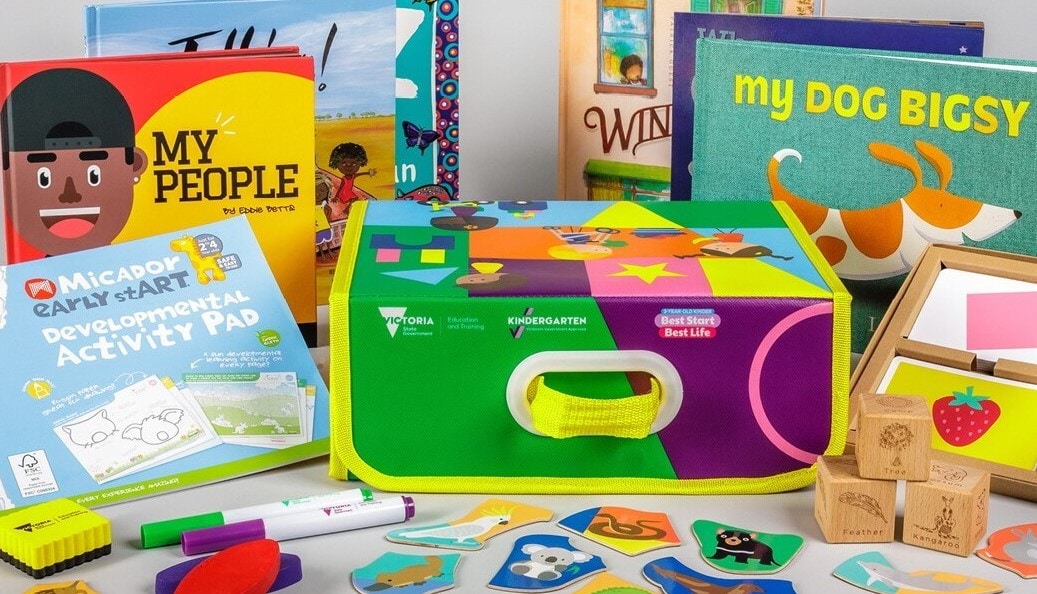
Kinder Kits are back again for 2023 and will be available for every eligible child enrolled in Three-Year-Old Kindergarten next year.
As orders for next year are being prepared using your provisional Three-Year-Old enrolment data in KIMS, please make sure your KIMS data is up to date by the end of October, including:
- your service’s contact details
- provisional 2023 Three-Year-Old Kindergarten enrolment numbers.
In November, our team will be contacting services to confirm your orders. If you are a service provider with more than one service, we will contact the primary contact listed in KIMS for your service provider to confirm kit orders for all services.
What’s in the kit?
Kinder Kit items have been carefully chosen to encourage creativity and open-ended play.
The kit includes books by Australian authors as well as toys and activities from Victorian designers and businesses. All items are child-safe and inclusive of Victoria’s diverse communities.
There are tips and ideas to help families engage with the kit and resources will also be available to support services to talk about the kits with families.
Children enrolled in a funded kindergarten program in the year before school will not be eligible to receive a Kinder Kit. Three-year-olds at long day care (LDC) services need to be enrolled in a funded Three-Year-Old Kindergarten program at the LDC to receive a kit.
Find out more
For further enquiries, contact the department by email: kinder.kits@education.vic.gov.au
Understanding the Child Information Sharing Scheme
Access videos and training to help you better understand the scheme and how you can support children and families to thrive.
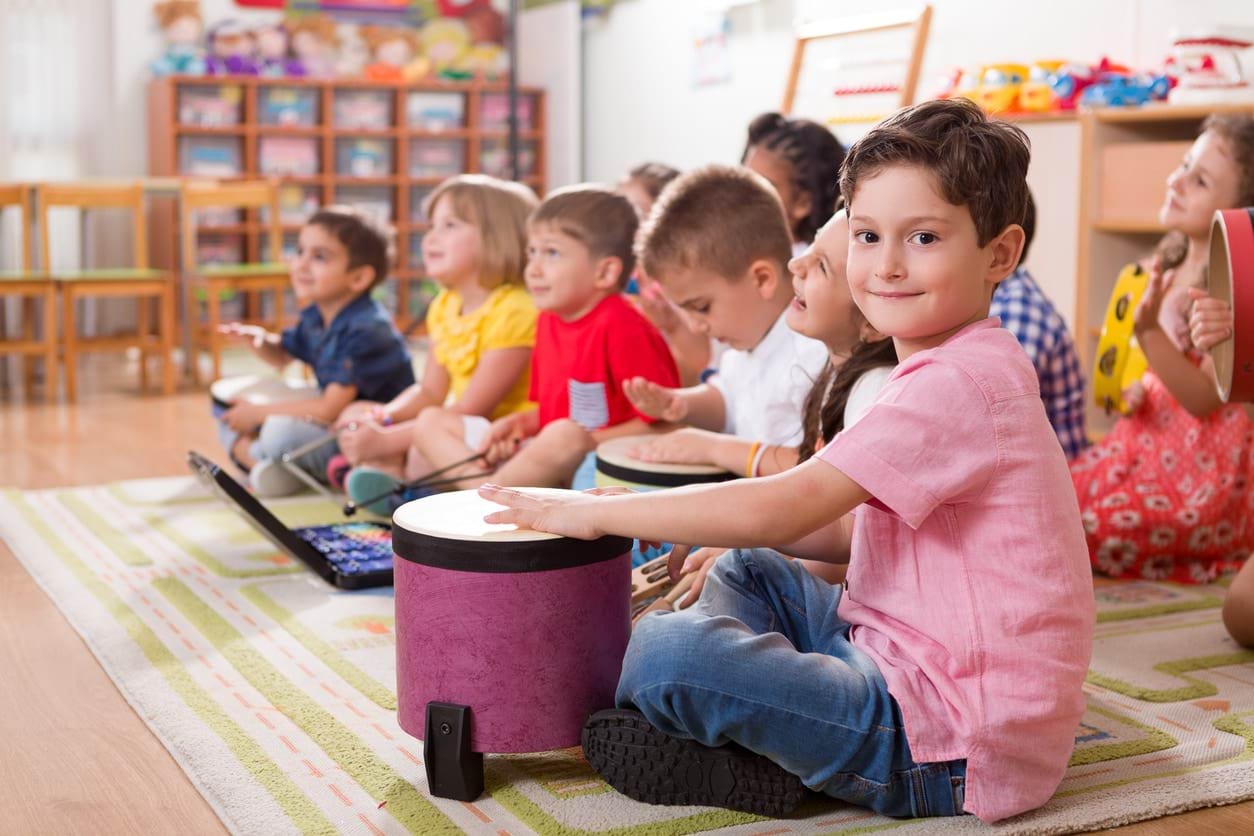
The Child Information Sharing Scheme (CISS) offers significant support for early childhood workforces in sharing information to promote children’s wellbeing and safety.
To help you better understand how the CISS works, please take 10 minutes to watch these 2 short animation videos and share them with your colleagues:
Building your understanding
Understanding the CISS will empower you to collaborate with other authorised services, such as schools, maternal and child health, Victoria Police and child protection, to:
- get the full picture of the children you work with
- identify issues or risks for children and families sooner
- ensure children receive the best support possible across services
- support children as they transition to schools.
Sign up for online training
To learn more, you can access free training through the Information Sharing and MARAM Online Learning System.
To enrol, select the ‘Education Workforces’ tile and select from the options listed below.
Education Professionals webinars
These 3.5-hour interactive online seminars are presented by a team of educators, with opportunities for discussion. Sessions are appropriate for all early childhood professionals. Morning and afternoon sessions are available several times a week.
Education Leaders eLearn
This is an online multimedia eLearning course for managers and other leaders in charge of change management processes. It consists of 4 modules, which each take around 25 minutes to complete. The entire course will take around 2 hours and you can complete it at your own pace.
Education Professionals eLearn
This is an online multimedia course designed to support professionals to share information confidently, safely and appropriately. There are 6 modules that will each take around 25 minutes. The entire course will take around 2.5 hours and you can complete it at your own pace.
Funding is available to support early years educators who wish to attend information sharing webinars. For more information, contact the department by email: CISandFVIS@education.vic.gov.au
To organise tailored information-sharing training for your team, contact the Victorian Child Information Sharing team by email: childinfosharing@education.vic.gov.au
Find out more
For more information about the reforms, see Child protection in early childhood: privacy and information sharing.
For further enquiries, contact the Victorian Child Information Sharing Division by email: childinfosharing@education.vic.gov.au
School Readiness Funding: future directions
Find out how the department will review and improve the program over the next 2 years.
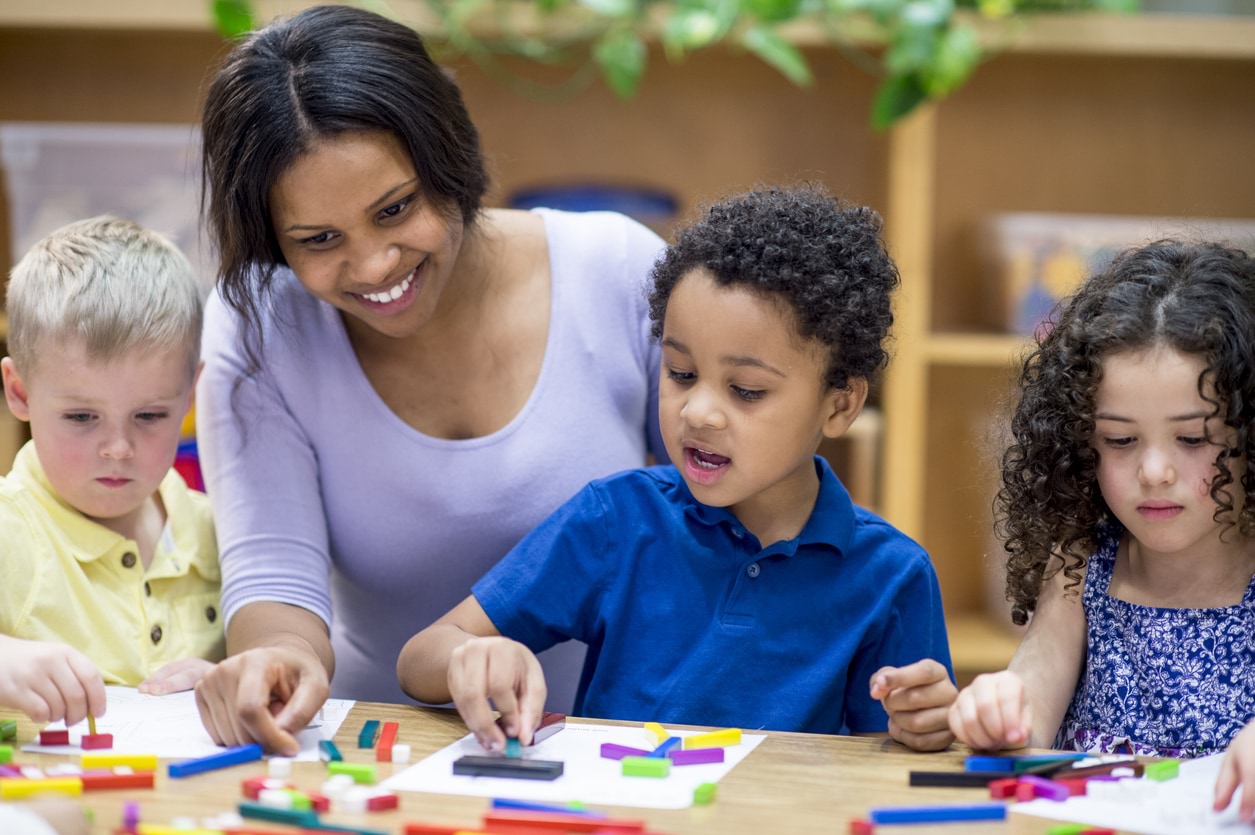
The Victorian Government is committed to meeting the needs of educators, children and families across the state.
To maximise the impact of School Readiness Funding (SRF), it is important to maintain its original purpose — to support children experiencing educational disadvantage.
Since the introduction of School Readiness Funding in 2019, the department has conducted a range of evaluation activities of the initiative. This has provided valuable information and feedback from kindergarten services about how they engage with and use School Readiness Funding, and areas that could be improved to ensure the funding achieves its objectives.
In response to this feedback, the Victorian Government is committing to reviewing and improving several key areas of School Readiness Funding. You can read more about these changes and the future directions for School Readiness Funding in this statement from the Minister of Early Childhood and Pre-Prep, Ingrid Stitt.
In response to the evaluation findings, the Victorian Government has announced that over the next 2 years, SRF will be refined in 4 key areas:
- reviewing the SRF priority areas definitions
- extending the SRF planning cycle to a 2-year cycle
- improving the SRF menu
- continuing to streamline planning and administration.
The changes to SRF will further improve outcomes for children experiencing educational disadvantage in the priority areas of communication, social and emotional wellbeing, access and inclusion.
Find out more
For more information about the SRF reform directions, refer to School Readiness Funding: supporting kindergartens.
For further enquiries, contact the department by email: school.readiness.funding@education.vic.gov.au